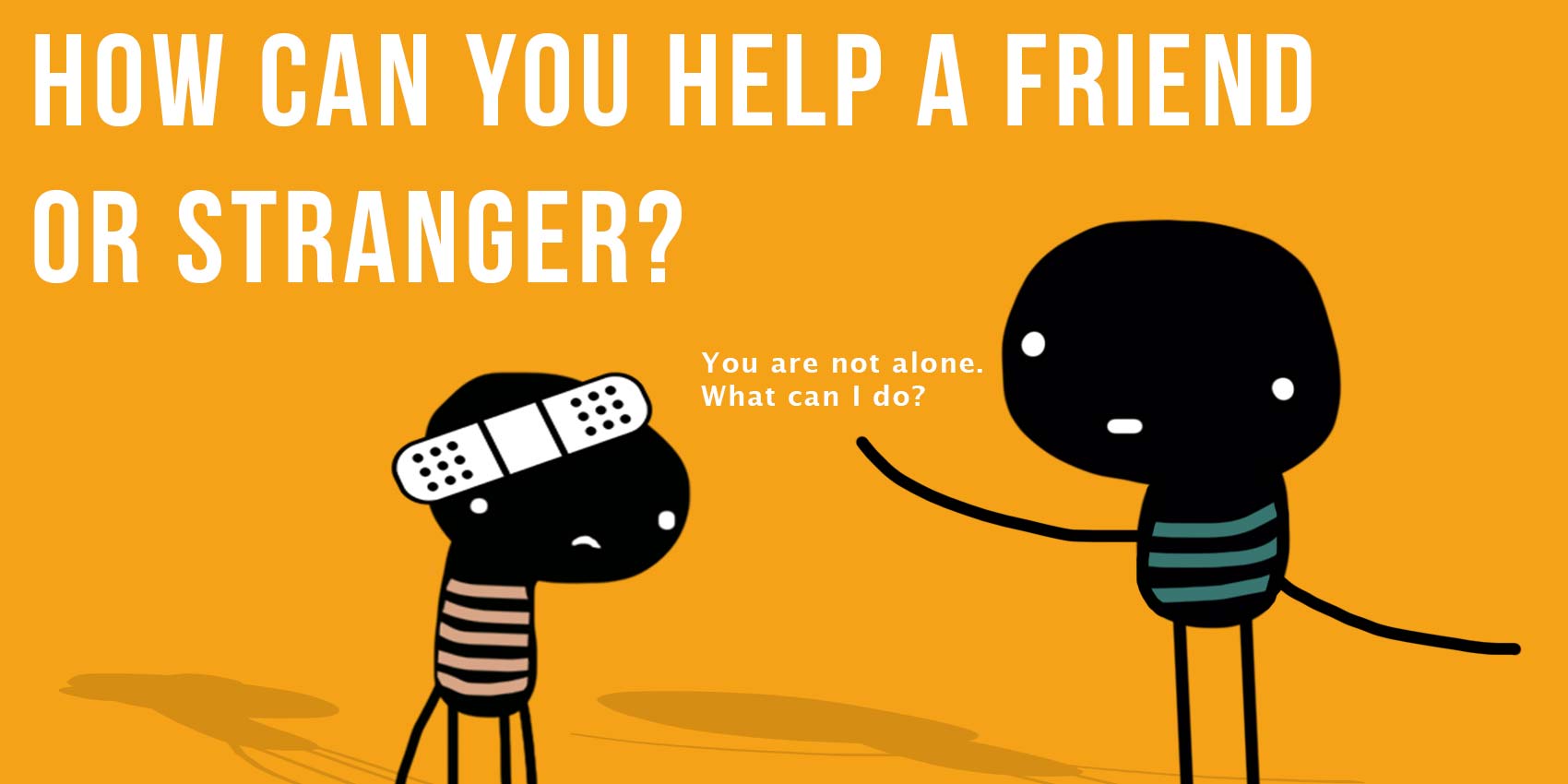11 Dec How can you help a friend or stranger?

Some teens might turn to their parents for help, but other might turn to a friend. Knowing exactly how to help can be hard, but here are some things to keep in mind if you are that friend that someone leans on:
* Listen to your friend. (Talking helps the “victim” release some of the emotional energy associated with the abuse.)
* Don’t blame your friend. “Victims” are not to blame.
* Empower your friend to create boundaries and strategies for maintaining those boundaries.
* Focus on your friend, not the abuser or the abuse.
* Help your friend become aware of just how serious it could get if he or she allows the abuse to continue.
* Develop a plan for safety. This may involve the parents, your parents, the school and/or even the authorities.
* Your role is basically helping the “victim” become a “survivor.”
(Okay, so basically, have your friend read all these posts and then have a serious conversation about the next steps to take!)

DID YOU KNOW? 2/3 of teens who experienced violence in dating relationships said someone witnessed it. Friends saw it 91% of the time. Parents or school personnel saw it 10% of the time.
Being in an abusive relationship may seem “crazy” to an outsider, but when you are in it, it can be very overwhelming and confusing. Because people are scared and confused, many will stay quiet. However just because someone doesn’t say something, doesn’t mean it isn’t happening. As such, here are some warning signs that a friend may be experiencing dating violence or aggression:
- Are there bruises? Ask about them.
- Have there been recent mood changes? Ask about them.
- Are there odd statements about leaving or committing suicide? Ask about them.
- Has there been a change in diet, clothing or activities? Ask about them.
- Are they isolating themselves lately? Ask about that.
- Are they not going to school or suddenly failing? Ask!
- Has there been an increase in alcohol or drug use? Ask why.
Now what happens if you witness something that bothers you and you suspect abuse? Here is a true story about just that:
Tom was minding his own business at school one day, walking through the halls on his way to the bathroom. When he passed by the stairwell he saw a guy holding a girl up against the wall, by her neck. She was practically dangling there. Tom made noise in an effort to distract the guy. It worked and he released the girl. She ran off and the guy turned to Tom and asked if he was looking for a fight.
This kind of physical abuse happens in hallways, bedrooms, back rooms, cars, streets – you name it. It can happen anywhere. But when a witness becomes involved, the victim is more likely to talk about it.
Later that day, Tom found the girl from the stairwell. He approached her and asked if she was okay. She was completely freaked at first because she was embarrassed and didn’t know Tom. (She was in ninth grade and Tom was in eleventh.) Tom pulled her aside privately and spoke to her about the situation. He convinced her to talk to someone about it.
Because Tom reached out to her, the girl felt validated (meaning listened to and assured) that she really was being abused. It became easier to talk to someone and get help.
IT IS YOUR BUSINESS WHEN YOU WITNESS VIOLENCE
Helping others is really important. But so is helping yourself. If you are the one who is abusing another, please read the next post…




Post Question:
What fears do you have about asking for help? Or what fears might keep you from helping someone else?
Answer the post question here
What's being said